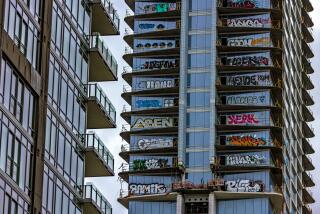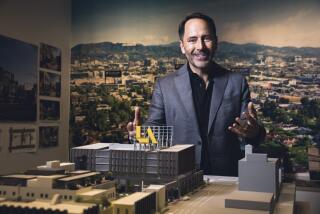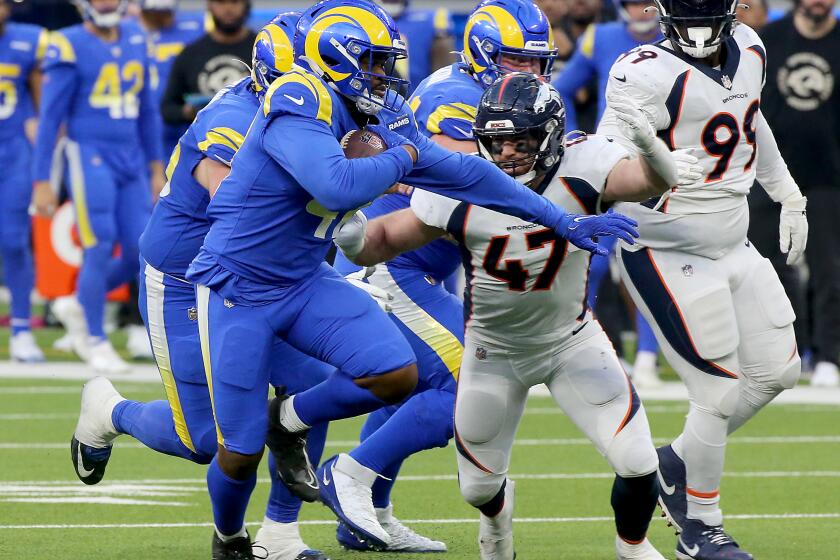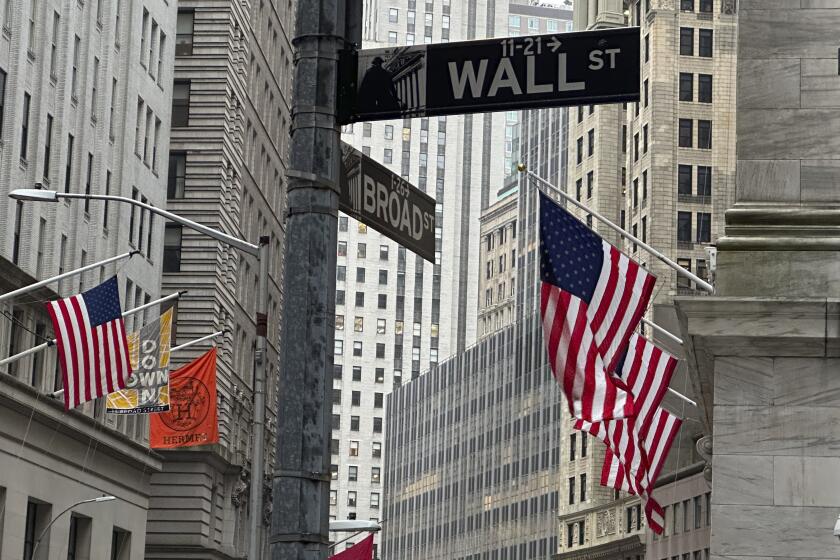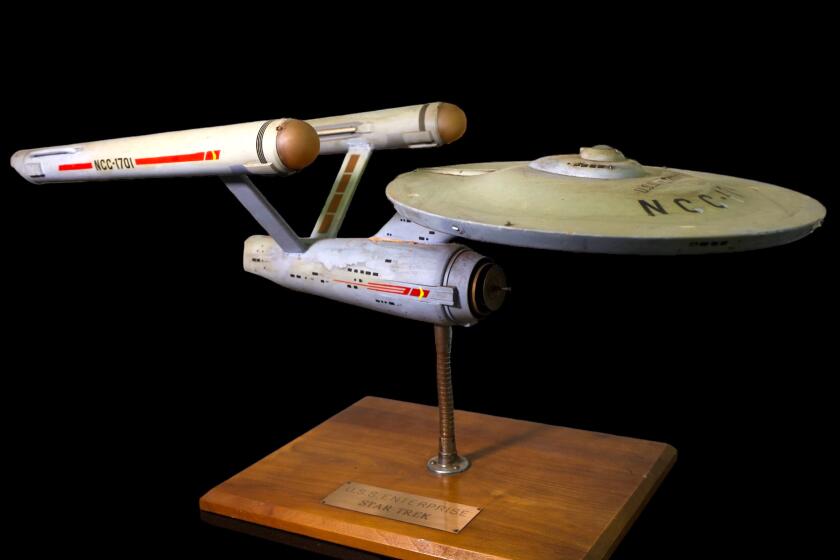McEwan’s Effort Brightens Prospects for Sun Savings
John McEwan blew into town five months ago full of the enthusiasm expected of someone who leaves Cleveland for a job in San Diego.
No matter that he was taking over a Sun Savings & Loan with a net worth below the regulatory minimum and enough allegations of conflicts of interest and self-dealings to attract the interest of federal regulators and prosecutors.
All that was less important to McEwan than the opportunity to mastermind a turnaround at Sun.
“I walked into a problem-solving paradise,” he said Monday. “The first step was to focus on those problems, set priorities and objectives, develop action plans, and be demanding about the results.”
He quickly wrote off nearly $5 million in bad loans, bringing the 1984 total write-off to about $9 million and halving the thrift’s net worth to a little more than $6 million.
Then he fashioned a rebuilding plan, the first phase of which was approved in principle last week by Sun’s board of directors.
On the surface, the deal could be profitable for Sun.
A nearly $2.5-million cash infusion from developer Victor Fargo coupled with a nearly 1.1-million-share public stock offering will more than double Sun’s net worth, to about $13.4 million. (The stock deal will be underwritten by New York financier Van D. Greenfield, who last year tried unsuccessfully to buy 45% of Sun with a $10-million capital infusion.)
The Fargo deal is complicated and controversial.
Sun must first move into Fargo’s new office building in La Jolla. That will enable Fargo to refinance his $17-million construction loan--10% of which was funded by Sun--and then use the $25 million or so in permanent financing to pay for his $2.5-million cash infusion into Sun.
Sun is paying top dollar--about $2.80 per square foot--for the office space at the height of a renter’s market: Landlords, faced with high office vacancy rates, are giving huge discounts to tenants.
The upside of the deal is that Sun will share in 25% of the building’s profits, from both leases (including its own) and the refinancing.
Fargo also will underwrite any losses incurred from subleasing 25,000 square feet of office space that Sun agreed to rent in May. The building has not yet been built.
The deal is a trade-off that McEwan thinks is a good risk.
But there are those, most notably shareholder Robert Blake, who think the deal smacks of the kind of insider dealing that got Sun in trouble in the first place.
In fact, Blake last week said he would file legal action to block the Fargo deal because the company is “creating long-term liabilities for some short-term, small amounts of cash.”
He also charged that Sun’s board was “selling the company back to their own little group, the Dierdorff group,” referring to ousted Chairman and Chief Executive Daniel W. Dierdorff, who now is reportedly under investigation by federal regulators and prosecutors.
The issue of a conflict may be simply a question of perception, according to McEwan.
Yes, Fargo is a business acquaintance of Dierdorff.
Yes, Fargo is the brother-in-law of Ted Van Leeuwen, a Sun director who also is leasing space in Fargo’s La Jolla building.
But, no, those relationships do not constitute a concrete conflict of interest, McEwan maintained.
Dierdorff no longer has anything to do with Sun, and Van Leeuwen, although he sat through the negotiations with Fargo, did not vote on the capital infusion proposal, Sun officials insist.
Given past allegations of conflicts at Sun, however, the appearance may be as importance as the substance.
“There is a difference between perception and reality, although the former is as important as the latter,” McEwan said.
Sun has “made public everything related to this transaction,” McEwan said. “We’re not hiding anything and everything is on top of the table. I don’t see how the public (can perceive) there is a conflict.”
McEwan said that a plan to swap $12 million in loans with an unidentified Seattle savings and loan likely will be completed in a week or two. About $9 million of the swap includes loans currently listed as part of Sun’s non-performing loans, which total about $36 million.
The loans to be swapped are part of participation loans with the Seattle company. In exchange, Sun will receive loans made by the Seattle firm to various San Diego companies and projects.
If the deal were not to go through, Sun officials have implied that they might initiate legal proceedings against the Seattle S&L.;
The loan swap and the cash from Fargo are part of McEwan’s plan to add about $20 million by the end of the year to Sun’s revenue-producing base.
In addition, McEwan, a former vice chairman and executive vice president of Central National Bank in Cleveland, said he wants Sun’s net worth to total at least 5% of total assets in the next two years.
To that end, McEwan said Monday that he is negotiating with two investment banking firms “to help us get there.”
Sun’s $6.1 million net worth as of March 31 was only 1.25% of its $485 million in assets. The new capital infusion from Fargo and the stock offering will boost the net worth ratio to about 3%, said McEwan.
In a related development, authorities of the American Stock Exchange reportedly are investigating why Sun’s stock rose dramatically in the days preceding last week’s announcement.
The stock closed June 19 at $4.50 per share, but skyrocketed to $6.75 last Tuesday, the day before Sun’s board approved the capital infusion plan and two days before the plan was announced publicly. Trading was especially heavy during that time, as 15,500 shares were traded in a three-day period.
Sun’s stock closed Monday at $5.50, down seven-eights, on 4,400 shares traded.

